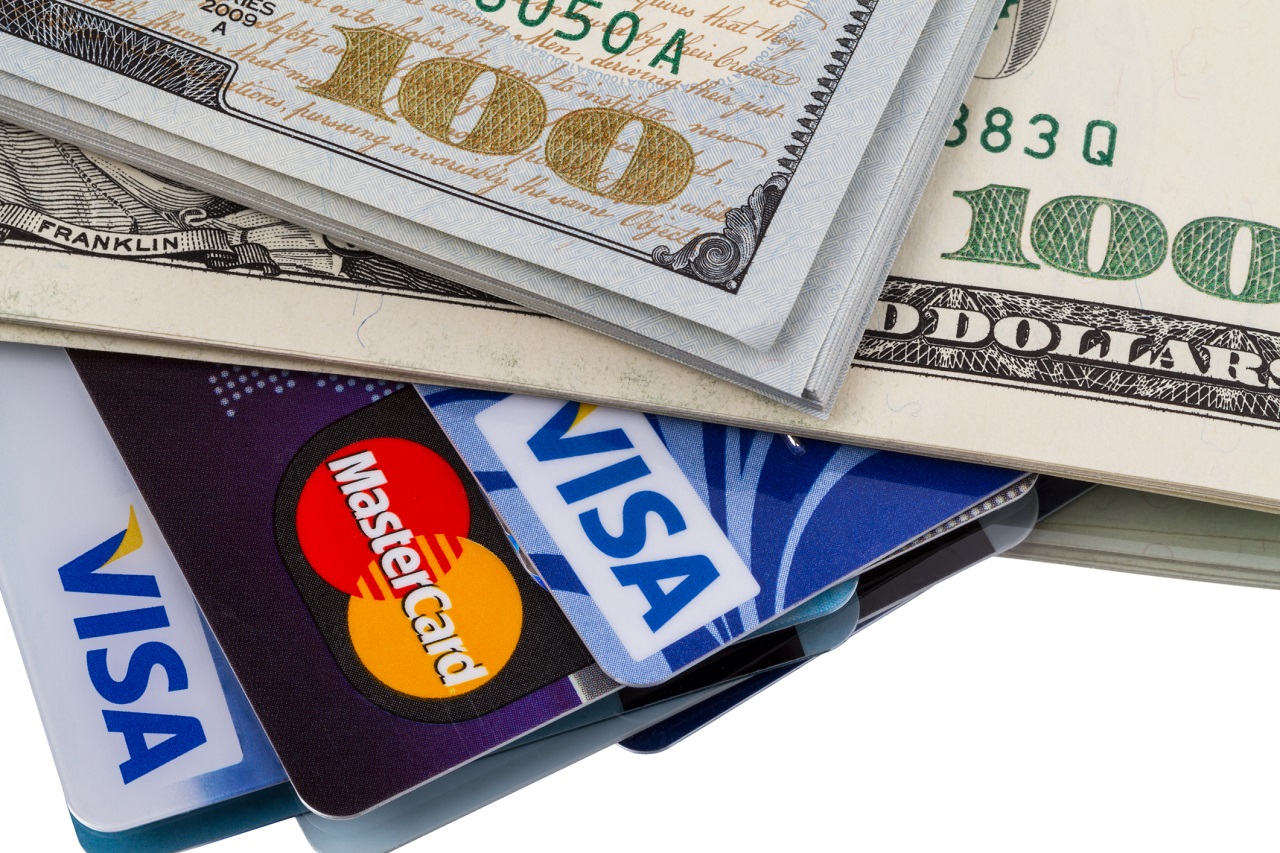Sharing Your Credit History With a Child
The drawbacks of adding your child's name to your credit card outweigh the benefits.

Profit and prosper with the best of Kiplinger's advice on investing, taxes, retirement, personal finance and much more. Delivered daily. Enter your email in the box and click Sign Me Up.
You are now subscribed
Your newsletter sign-up was successful
Want to add more newsletters?

Delivered daily
Kiplinger Today
Profit and prosper with the best of Kiplinger's advice on investing, taxes, retirement, personal finance and much more delivered daily. Smart money moves start here.

Sent five days a week
Kiplinger A Step Ahead
Get practical help to make better financial decisions in your everyday life, from spending to savings on top deals.

Delivered daily
Kiplinger Closing Bell
Get today's biggest financial and investing headlines delivered to your inbox every day the U.S. stock market is open.

Sent twice a week
Kiplinger Adviser Intel
Financial pros across the country share best practices and fresh tactics to preserve and grow your wealth.

Delivered weekly
Kiplinger Tax Tips
Trim your federal and state tax bills with practical tax-planning and tax-cutting strategies.

Sent twice a week
Kiplinger Retirement Tips
Your twice-a-week guide to planning and enjoying a financially secure and richly rewarding retirement

Sent bimonthly.
Kiplinger Adviser Angle
Insights for advisers, wealth managers and other financial professionals.

Sent twice a week
Kiplinger Investing Weekly
Your twice-a-week roundup of promising stocks, funds, companies and industries you should consider, ones you should avoid, and why.

Sent weekly for six weeks
Kiplinger Invest for Retirement
Your step-by-step six-part series on how to invest for retirement, from devising a successful strategy to exactly which investments to choose.
I've heard that I can give my son my credit rating by making him an authorized user on one of my credit cards. What do you think of this idea?
I've never liked the idea of mixing your credit history with your child's by making him an authorized user of your card. And pretty soon you won't be able to use this gambit any more.
The idea is to add your child's name to your card without actually letting him use the card. You continue to pay the bill, but when he applies for credit he gets the benefit of your credit record.
From just $107.88 $24.99 for Kiplinger Personal Finance
Become a smarter, better informed investor. Subscribe from just $107.88 $24.99, plus get up to 4 Special Issues

Sign up for Kiplinger’s Free Newsletters
Profit and prosper with the best of expert advice on investing, taxes, retirement, personal finance and more - straight to your e-mail.
Profit and prosper with the best of expert advice - straight to your e-mail.
In my opinion, there have always been a number of flies in this ointment. For one thing, if children aren't actually using the card or paying the bills, they aren't really learning how to manage credit.
For another, kids don't actually inherit your credit score, based on your presumably long credit history. They only get the benefit of that one account. It will take them about six months to start compiling a credit score of their own.
Most important, kids don't need your help to get credit. Once they turn 18 and head off to college, issuers are happy to give them any number of cards in their own name.
All this will become moot come September, when Fair Isaac, the company that compiles the FICO credit score, will no longer allow authorized users to benefit from someone else's credit history.
Fair Isaac is trying to quash a new kind of fraud, called piggybacking, in which people with poor credit buy the right to be an authorized user on a card held by someone with stellar credit.
One alternative for parents is to make a child a co-signer on a credit card. But that's even more risky because both you and your child would be responsible for the debt. If your child skips out, you're on the hook.
It's a parent's job to help kids develop the skills to manage credit when they're mature enough to handle it. But parents aren't obliged to give their children credit or the benefit of their own credit history.
I recommend that college students get a couple of years' experience managing their expenses with cash and a checking account and then apply for a credit card. When my daughter applied for a card shortly before she graduated in May, she had no trouble getting a Sovereign Bank Visa with a stellar 9.9% interest rate.
FICO's new Expansion score makes it easier for young people to get credit if they have little or no credit information on file. Fair Isaac uses data such as whether you pay your rent on time or have a clean checking account.
Young people who are still having difficulty getting a MasterCard or Visa can start with a card from a retail store. Or they can apply for a secured card, which requires a savings deposit equal to the credit line (for a listing of secured cards, go to www.cardweb.com or www.cardratings.org).
Profit and prosper with the best of Kiplinger's advice on investing, taxes, retirement, personal finance and much more. Delivered daily. Enter your email in the box and click Sign Me Up.

Janet Bodnar is editor-at-large of Kiplinger's Personal Finance, a position she assumed after retiring as editor of the magazine after eight years at the helm. She is a nationally recognized expert on the subjects of women and money, children's and family finances, and financial literacy. She is the author of two books, Money Smart Women and Raising Money Smart Kids. As editor-at-large, she writes two popular columns for Kiplinger, "Money Smart Women" and "Living in Retirement." Bodnar is a graduate of St. Bonaventure University and is a member of its Board of Trustees. She received her master's degree from Columbia University, where she was also a Knight-Bagehot Fellow in Business and Economics Journalism.
-
 The New Reality for Entertainment
The New Reality for EntertainmentThe Kiplinger Letter The entertainment industry is shifting as movie and TV companies face fierce competition, fight for attention and cope with artificial intelligence.
-
 Stocks Sink With Alphabet, Bitcoin: Stock Market Today
Stocks Sink With Alphabet, Bitcoin: Stock Market TodayA dismal round of jobs data did little to lift sentiment on Thursday.
-
 Betting on Super Bowl 2026? New IRS Tax Changes Could Cost You
Betting on Super Bowl 2026? New IRS Tax Changes Could Cost YouTaxable Income When Super Bowl LX hype fades, some fans may be surprised to learn that sports betting tax rules have shifted.
-
 Smart Strategies for Paying Your Child an Allowance
Smart Strategies for Paying Your Child an AllowanceBy giving your kids money to spend and save, you’ll help them sharpen their financial skills at an early age.
-
 Mastercard Says It Is Not Raising Network or Swipe Fees
Mastercard Says It Is Not Raising Network or Swipe FeesCard processing giant says WSJ story on credit card fee hikes ‘is wrong.’
-
 How to Benefit From Rising Interest Rates
How to Benefit From Rising Interest RatesFinancial Planning Savers will get the best rates from top-yielding savings and money market deposit accounts at online banks.
-
 Credit, Debit or Cash? Which is Best?
Credit, Debit or Cash? Which is Best?credit & debt Credit or debit? Cash? Each payment method has pros and cons. Your best bet is to use a combination that meets your own needs.
-
 Get the Most Benefit from Credit Card Perks
Get the Most Benefit from Credit Card PerksMake the most of credit card perks like travel insurance, delivery discounts and fraud protection.
-
 Bank of America Offering Cardholders Bonus Rewards Points for Shopping on Nov. 5
Bank of America Offering Cardholders Bonus Rewards Points for Shopping on Nov. 5The bank’s first More Rewards Day is designed to play into early holiday shopping demand.
-
 Best Balance Transfer Credit Cards 2023
Best Balance Transfer Credit Cards 2023Balance transfer credit cards have the power to drastically cut your payments with 0% APR. But there’s a cost, and rules to follow.
-
 How to Motivate Kids to Save
How to Motivate Kids to Savepersonal finance It's not easy teaching your child to save. Here are some ways readers have incentivized their kids to keep track of their finances.